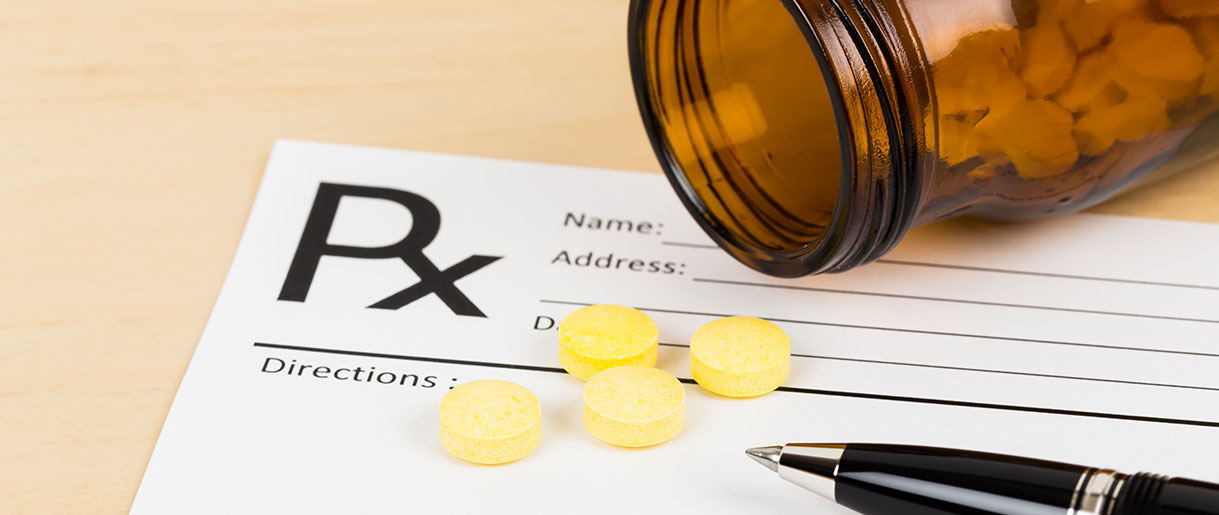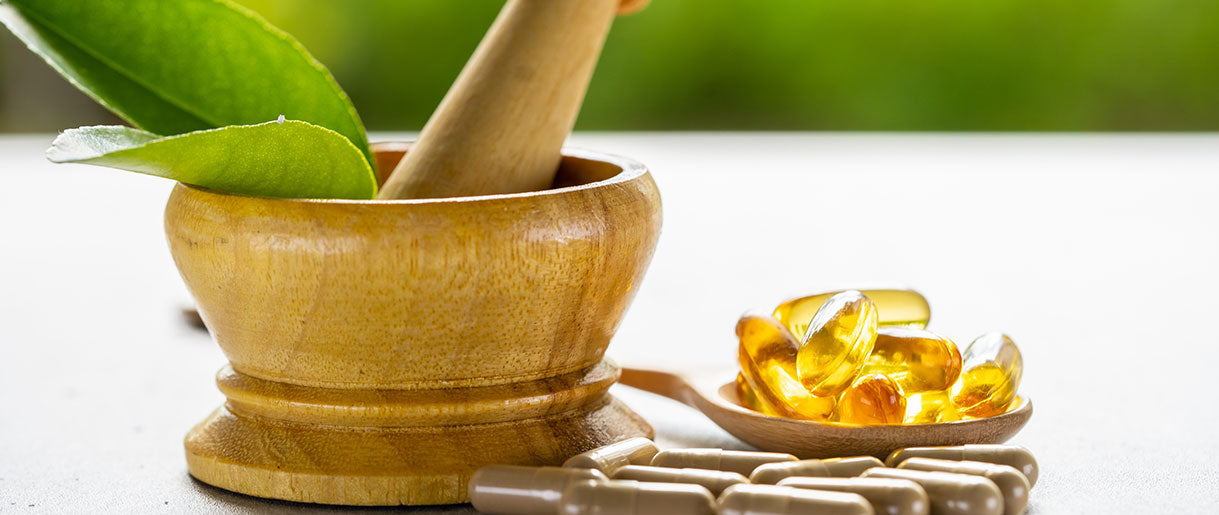Nootropics are compounds believed to improve cognitive function and enhance memory, creativity, and motivation. But here's the million-dollar question: Do nootropics work, or are they just modern-day snake oil?
In short, while some nootropics have shown potential in scientific studies, particularly for improving memory, attention, and mental clarity, the effectiveness can vary greatly depending on the type of nootropic, the individual using it, and the specific cognitive goals they aim to achieve.
Many nootropics lack large-scale, definitive research to prove their effectiveness. However, certain substances like caffeine and L-Theanine, often included in nootropic formulations, are well-documented for their cognitive-enhancing effects.
In this deep dive, we'll sift through the layers of hype and hope, giving you a definitive answer on whether you can trust nootropics to offer you the brain health benefits you seek.
Natural Nootropics
These are derived from plants and herbs and are known for their gentler effect on the brain. Examples include:
- Ginkgo Biloba: One of the best nootropics for memory, Ginkgo Biloba enhances memory and cognitive speed. Scientific studies (1) show its positive effects on brain function and memory in healthy adults.
- Bacopa Monnieri: Known for improving memory and information processing. Research (2) supports its role in enhancing cognitive function and reducing anxiety.
- Rhodiola Rosea: Aids in reducing fatigue and improving concentration. Studies (3) indicate its effectiveness in enhancing mental performance under stress.
Synthetic Nootropics

These are Lab-created compounds specifically designed to enhance cognitive functions. Some well-known examples include:
- Modafinil: Increases alertness and reduces sleepiness. Scientific research (4) has shown its efficacy in improving attention and alertness in sleep-deprived individuals.
- Noopept: Enhances memory and learning capacity. Studies (5) support its potential to improve cognitive function and neuroprotective effects.
- Piracetam: Known to improve memory and cognitive function. Research (6) indicates benefits in cognitive enhancement, particularly in older adults.
Nutraceuticals
These are food-based supplements offering cognitive enhancement and overall health benefits. Some common examples include:
- Omega-3 Fatty Acids: Some of the best nootropics for focus, Omega 3s are essential for brain health and function. Research (7) shows their role in improving mental skills and preventing cognitive decline.
- Creatine: Supports brain energy metabolism. Studies (8) indicate its effectiveness in improving memory and reasoning skills in healthy individuals.
- Flavonoids (found in berries and cocoa): Improve memory and cognitive abilities. Research (9) supports their neuroprotective and cognitive-enhancing effects.
Prescription Nootropics

These nootropics are medically prescribed for specific cognitive impairments, offering targeted cognitive enhancement. Some common examples include:
- Adderall: One of the best nootropics for ADHD, Adderall enhances focus and attention. Clinical studies (10) demonstrate its effectiveness in improving attention and reducing impulsivity in ADHD patients.
- Ritalin:This is another ADHD medication known for increasing concentration and focus. Research (11) has shown its efficacy in enhancing attention and executive functions in ADHD individuals.
- Memantine: Used in Alzheimer's treatment, it helps memory and learning. Studies (12) support its use in improving cognitive function and daily living activities in Alzheimer's patients.
How Do Nootropics Work?

At this point, we have proven that scientific studies back the claims that some nootropics do work. However, how exactly do they work? Let's discuss their working mechanisms below:
1. Boosting Brain Messengers: Nootropics can boost the levels of your brain's messengers, known as neurotransmitters. These are the chemicals that help your brain cells talk to each other. For example, Modafinil, a synthetic nootropic, increases dopamine levels (13), a neurotransmitter associated with focus and alertness.
2. Improving Blood Flow: Some nootropics help increase blood flow to your brain. More blood means more oxygen and nutrients for your brain cells. For example, Ginkgo Biloba, a natural nootropic, enhances blood flow to the brain (14), improving cognitive functions like memory and concentration.
3. Reducing Stress:Some nootropics help lower stress and anxiety. They work by calming down the stress responses in your brain. For example, Ashwagandha, an adaptogenic herb often used as a nootropic, helps reduce stress and anxiety (15) by regulating the body's stress response system.
4. Fine-Tuning Brainwaves: Certain nootropics can help adjust your brainwaves, which can put you in a state of relaxed focus. For example, L-Theanine, commonly found in green tea, is known for its ability to fine-tune brainwaves (16), promoting a state of relaxed alertness and improving focus.
5. Energizing the Brain: Just like a snack gives you energy, some nootropics boost your brain's energy levels, helping you feel more mentally awake and ready. Creatine, a popular nutraceutical nootropic, is known for energizing the brain (17) by enhancing its energy metabolism, improving cognitive functions and reducing mental fatigue.
Understanding The Placebo Effect

When we talk about nootropics and their effectiveness, there's a fascinating player that often enters the conversation: the placebo effect.
This phenomenon, where people experience real changes in their health after taking a substance with no therapeutic effect, is a powerful testament to the mind-body connection.
The placebo effect happens when people feel better after taking something they believe is beneficial, even if it has no active ingredients. It's like the brain tricks itself into feeling the effects.
For example, if you expect a pill to make you more alert and focused, your brain might just make you feel that way, even if the pill is just sugar.
With nootropics, sometimes the belief that they will improve cognitive function can be enough to create a noticeable change. This makes it tricky to determine if the improvement is from the nootropic itself or just the belief in its power.
- Understanding True Effectiveness: Knowing about the placebo effect is crucial in understanding whether nootropics work. It helps separate the actual effects of the substance from the psychological ones.
- Subjective Responses:People's experiences with nootropics for studying or memory can vary widely. What feels like a significant boost to one person might have no effect on another, and sometimes, these experiences are influenced by the expectation of benefit.
- The Power of Belief:The placebo effect shows us that the belief in treatment can be a powerful force in how we feel. It's a reminder of how closely our minds and bodies are linked.
The placebo effect is a crucial factor to consider when evaluating the effectiveness of nootropics.
While it doesn't invalidate the potential benefits of these substances, it does emphasize the need for rigorous scientific testing and a critical approach to personal experiences with nootropics.
Safety and Side Effects of Nootropics

When considering the use of nootropics, understanding their safety and potential side effects is crucial. While many nootropics are touted for their brain-boosting benefits, they are not without risks. Here's an overview of the side effects of nootropics:
- Natural Nootropics: These are generally considered safer with fewer side effects due to their natural origin. However, they may have mild effects like headaches, nausea, or digestive discomfort can occur, especially if taken in high doses.
- Synthetic Nootropics: These are potentially more powerful but have a higher risk of side effects. Long-term safety is often less understood. Common side effects can include insomnia, anxiety, heart palpitations, and increased blood pressure. Dependence and withdrawal symptoms are also concerns, particularly with prolonged use.
- Nutraceuticals: These are often well-tolerated, especially when consumed as part of a balanced diet. Overuse can lead to imbalances or gastrointestinal issues. It's important to adhere to recommended dosages.
- Prescription Nootropics: While their prescription status ensures some level of regulation, they can have significant side effects. Their side effects include dependency, increased heart rate, high blood pressure, and mental health effects like mood swings or depression.
To reduce the risk of dealing with side effects when using synthetic, nutraceuticals, prescription or natural nootropics, leverage these essential tips:
- Consultation: Always consult with a healthcare provider before starting any nootropic, especially if you have pre-existing health conditions or are taking other medications.
- Quality Matters: Choose reputable brands and sources to ensure purity and quality.
- Start Small: Begin with lower doses and monitor your body's response.
- Listen to Your Body:Be aware of adverse reactions and discontinue use if necessary.
In summary, while nootropics can offer cognitive enhancement benefits, their safety and side effects vary depending on the type and individual.
Natural nootropics tend to have a safer profile, while synthetic and prescription nootropics carry more risks. Responsible use, informed by research and medical advice, is key to minimizing potential risks and maximizing benefits.
FAQs About "Do Nootropics Work?"
Can Nootropics Improve Brain Health in the Long Term?
Nootropics' long-term effects on brain health are still a subject of ongoing research. While some nootropics, especially those prescribed for specific medical conditions, may offer benefits in terms of cognitive function and brain health, the long-term impact of over-the-counter nootropics is less clear.
It's important to approach nootropics with a balanced perspective, understanding that they are not a magic solution and should be complemented with a healthy lifestyle, including a nutritious diet, regular exercise, and adequate sleep.
Are There Natural Foods That Work Like Nootropics?
Yes, certain natural foods can provide nootropic-like benefits.
Foods rich in omega-3 fatty acids (like fatty fish), antioxidants (found in berries and leafy greens), and flavonoids (present in dark chocolate and green tea) are known to support brain health and cognitive function.
These foods can help improve memory, focus, and overall brain function, acting as natural cognitive enhancers without the need for dietary supplements.
How Do I Choose the Right Nootropic for Me?
Choosing the right nootropic requires a combination of research, consultation with healthcare professionals, and an understanding of your specific cognitive goals and health conditions.
Start by identifying what you want to improve (memory, focus, energy levels, etc.) and research nootropics known for those benefits. Always consult with a healthcare professional, especially if you have existing health conditions or are taking other medications, to avoid adverse interactions and side effects.
Remember, what works for one person may not work for another, so listening to your body and adjusting is important.
Key Takeaways
So, we've journeyed through the intricate world of nootropics, from their brain-boosting promises to the sobering realities of their effects and risks. We've uncovered that while nootropics can be an exciting frontier in cognitive enhancement, they're not a one-size-fits-all solution. The key lies in balancing curiosity with caution and innovation with wisdom.
Remember, the quest for enhanced cognitive abilities is as old as humanity, but the answers may lie as much in our lifestyles and natural diets as in a pill. Whether you're considering nootropics for sharper focus, improved memory, or just to keep up with the demands of a hectic life, it's essential to stay informed, consult healthcare professionals, and most importantly, listen to your body.
Now, we want to hear from you. What's your take on nootropics? Have you tried them, or are you considering it? Maybe you've got some natural brain-boosting secrets of your own.
Drop a comment below and join the conversation. Let's keep exploring this fascinating topic together, sharing experiences, insights, and tips on navigating the ever-evolving landscape of cognitive enhancement.
Your thoughts could be the brainwave that sparks a new discovery!
References
- Examining Brain-Cognition Effects of Ginkgo Biloba Extract: Brain Activation in the Left Temporal and Left Prefrontal Cortex in an Object Working Memory Task, (1), https://www.ncbi.nlm.nih.gov/pmc/articles/PMC3166615/
- Does Bacopa monnieri improve memory performance in older persons? Results of a randomized, placebo-controlled, double-blind trial, (2), https://pubmed.ncbi.nlm.nih.gov/20590480/
- Rhodiola rosea L. Improves Learning and Memory Function: Preclinical Evidence and Possible Mechanisms, (3), https://www.ncbi.nlm.nih.gov/pmc/articles/PMC6288277/
- Modafinil improves attentional performance in healthy, non-sleep deprived humans at doses not inducing hyperarousal across species, (4), https://www.ncbi.nlm.nih.gov/pmc/articles/PMC6472902/
- [Noopept in the treatment of mild cognitive impairment in patients with stroke], (5), https://pubmed.ncbi.nlm.nih.gov/22500312/
- Presence of Piracetam in Cognitive Enhancement Dietary Supplements, (6), https://www.ncbi.nlm.nih.gov/pmc/articles/PMC6902196/
- The Importance of Marine Omega-3s for Brain Development and the Prevention and Treatment of Behavior, Mood, and Other Brain Disorders, (7), https://www.ncbi.nlm.nih.gov/pmc/articles/PMC7468918/
- “Heads Up” for Creatine Supplementation and its Potential Applications for Brain Health and Function, (8), https://link.springer.com/article/10.1007/s40279-023-01870-9
- The neuromodulatory effects of flavonoids and gut Microbiota through the gut-brain axis, (9), https://www.ncbi.nlm.nih.gov/pmc/articles/PMC10327292/
- Neurocognitive, Autonomic, and Mood Effects of Adderall: A Pilot Study of Healthy College Students, (10), https://www.ncbi.nlm.nih.gov/pmc/articles/PMC6165228/
- Methylphenidate for children and adolescents with attention deficit hyperactivity disorder (ADHD), (11), https://pubmed.ncbi.nlm.nih.gov/36971690/
- Memantine for the prevention of cognitive dysfunction in patients receiving whole-brain radiotherapy: a randomized, double-blind, placebo-controlled trial, (12), https://www.ncbi.nlm.nih.gov/pmc/articles/PMC3779047/
- Effects of Modafinil on Dopamine and Dopamine Transporters in the Male Human Brain: Clinical Implications, (13), https://www.ncbi.nlm.nih.gov/pmc/articles/PMC2696807/
- Effects of Ginkgo biloba on cerebral blood flow assessed by quantitative MR perfusion imaging: a pilot study, (14), https://pubmed.ncbi.nlm.nih.gov/21061003/
- Adaptogenic and Anxiolytic Effects of Ashwagandha Root Extract in Healthy Adults: A Double-blind, Randomized, Placebo-controlled Clinical Study, (15), https://www.ncbi.nlm.nih.gov/pmc/articles/PMC6979308/
- Anti-Stress, Behavioural and Magnetoencephalography Effects of an l-Theanine-Based Nutrient Drink: A Randomised, Double-Blind, Placebo-Controlled, Crossover Trial, (16), https://www.ncbi.nlm.nih.gov/pmc/articles/PMC4728665/
- Effects of creatine supplementation on memory in healthy individuals: a systematic review and meta-analysis of randomized controlled trials, (17), https://academic.oup.com/nutritionreviews/article/81/4/416/6671817?login=true










Let Us Know Your Comments